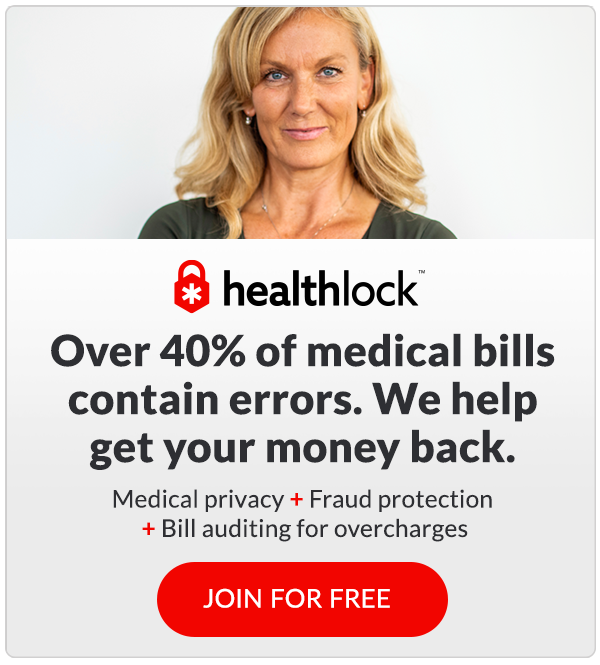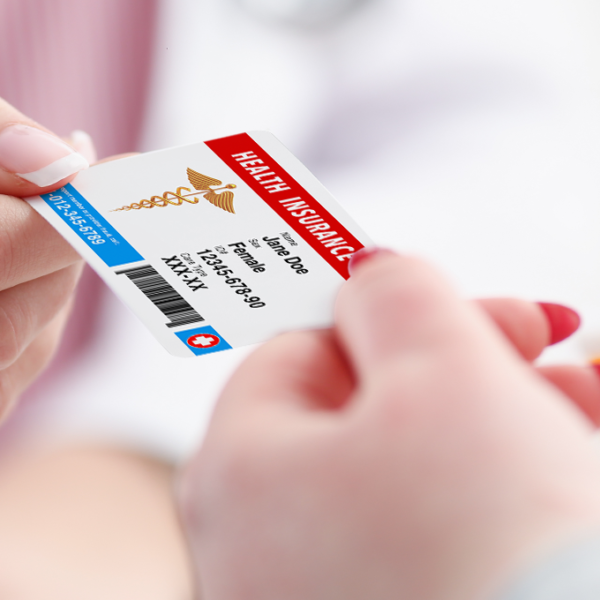Here at HealthLock, we’re dedicated to helping protect your medical privacy and the security of your healthcare information. But while we’re proud to stand between you and those that want access to your data for personal gain, there are also things that you can do to keep your sensitive data secure. That’s why we’ve created this series to help you take the necessary steps. In this sixth installment of our Protecting Your Privacy series, you’ll learn why you should treat your medical information like financial information.
We all take extra-special care of our financial information. We don’t post about it online, and we usually don’t talk about it to anyone except our nearest and dearest. That’s because we know spreading this information around is basically like ringing the dinner bell for thieves.
Did you know that on the black market, a stolen medical record is worth up to 40 times more than a stolen credit card? It’s incredibly sensitive information. Unfortunately, we don’t always keep our medical information as close to the vest as we should. Why is this, and how can we change that behavior?
How can thieves get information from social media?

Today’s social media platforms often come with all sorts of privacy options. You can, in theory, lock your account so that only you and a handful of selected people can see it.
We understand the urge to share some of your medical information. Social media is often how people connect in the digital era, and posting about your ailments and experiences with doctors can help us feel like we’re having a real conversation about our health.
But you’ve probably heard the old saying: “Don’t put it on the internet if you wouldn’t be comfortable seeing it all over the evening news.”
Unfortunately, social media platforms can be hacked, too, and thieves can see exactly what you’ve posted—even if you made it completely private.
What kind of data can thieves get from my social media?
Here are just a handful of things people will post about on social media:
- Medical bills
- Ailments and doctor’s visits
- Treatments
- Prescriptions
- Doctors
As we’ve discussed in other articles, thieves only need one or two pieces of your medical information to start constructing a profile they can use to get medical care or prescriptions in your name—effectively stealing your medical identity.
Next time you’re thinking about posting about your medical situation, stop and take a breath. Ask yourself what kind of information you’re revealing to potential thieves, and whether it’s worth taking that risk.
Treat your healthcare information like your financial information

Our CEO, Scott Speranza, suggests giving your medical data the same respect as your banking data. Thieves are always looking for new ways to get at your credit card or checkbook. Most of us know that sharing that sort of information online is a quick way to empty accounts. We don’t talk about our savings, our PINs, or anything else.
Your healthcare information is just as valuable as your financial information—maybe even moreso. If someone steals your debit card and starts making purchases, you and the bank can generally put a stop to it and recover your money. If someone is able to steal your medical identity, they can make permanent changes to your medical record, which can impact the type of care you receive in the future.
Trust yourself and HealthLock
Keeping quiet about your medical information can be a big step in protecting your medical identity. But fraudsters and thieves don’t give up. They’ll continue to find new ways to access your information.
That’s why we created HealthLock. We believe everyone has a right to medical privacy. Our powerful AI technology scans every bill and Explanation of Benefits you receive, searching for overbilling, medical identity theft, and other signs of fraud. If it turns out you’re a victim of fraud, we can even help you recover damages.
Fraudsters don’t quit—fortunately, neither does HealthLock.





